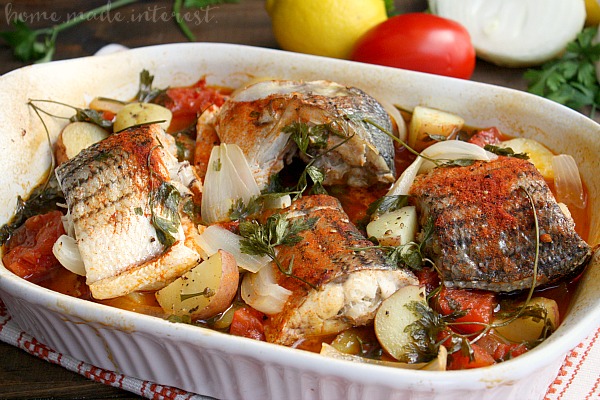
There are plenty of restaurants for all taste buds in Algarve, including an impressive amount of Michelin starred restaurants like the Vila Joya and The Ocean. However, we would recommend eating at traditional restaurants to get an authentic taste of everything Algarve has to offer. Although you can never go wrong with seafood in Algarve, some of the classic Portuguese foods include: fresh catch of the day, sardines, piri piri chicken, soup, and cataplana! Some of the best food is found in hidden snack bars, rooftop restaurants, Michelin star restaurants, or food festivals!

What to Eat:
Fresh Fish
Cod is the most common fish to eat in Algarve but other popular dishes include octopus, squid, lobster, shrimp, prawns, mackerel and mussels. A popular codfish dish is called "Pasteis de bacalhau" and roughly translates to codfish pastels. This dish is made from fried eggs, shredded codfish, onion and parsley.
They are mixed together and fried together, resulting in small oven pastels that can be served both hot or cold. Cod is also commonly just boiled with vegetables and potatoes as a side dish. "Bacalhau a Bras" is a dish that is made from fried potatoes, codfish, parsley and eggs mixed together as well.

Sardines
Sardines are big in Portugal, as there is even an annual sardine festival in August! For grilled sardines, we recommend visiting the Boia at Salema. This is a cheap and happy-vibed cafe by the beach with fresh fish always served with hearty potatoes and refreshing salad. Grilled sardines are a traditional dish from Festa de Sao Joao do Porto, which is a festival celebrated every Portuguese summer.

Piri Piri Chicken
It's not exactly clear where Piri Piri Chicken originated from, but Algarve is famous for it. Especially in the small town of Guia, there is even a piri-piri chicken festival that takes place every August. Piri Piri chicken is made from a marinated chicken that has ingredients like garlic, olive oil, salt, lemon juice and piri piri chilies, and is normally cooked over a coal BBQ or an oven. Typically, they are served with salad or rice and chips. Recently, piri piri chicken has grown in popularity thanks to chain restaurants like Nando's who have tried to imitate the wonderful flavors of Algarve.

Soup
Portugal's national dish is a simple soup called Caldo Verde, which is made from potato and kale, sometimes with bacon and sausage added to it. Typically it is seasoned with collard greens, olive oil and salt, and served with Portuguese corn bread for dipping. It is extremely popular for serving during celebrations such as weddings or birthday parties.

Cataplana
Cataplana refers to a clam shaped cooking pan made from copper as well as the food inside of it. This cooking utensil allows for ingredients to preserve their natural juices, aromas and flavors. The most popular version of cataplana is called "Ameijoas na Cataplana" which means "clams in the cataplana". It is basically a stew that is fish or seafood based with whatever other ingredients are found. Some popular versions of cataplana include a fish cataplana, seafood cataplana, fish and seafood cataplana, and pork and clam cataplana. After being fried with herbs, it is topped with white wine and tomatoes, and served when a liquor forms.

Where to Eat:
Hidden Snack Bar
We recommend a first visit to the backstreets of Quarteira where there is a hidden snack bar called Tico Tico. Arriving here early ensures you have the freshest catch and that there is still supply, as food here sells out quickly. There is no menu here, you simply choose from the seafood display at the front, from clams to octopus, and feel free to enjoy in this shack with the freshest flavors.

Restaurant with a View
If looking for a restaurant with a view, we recommend visiting the Hilltop Monchique. For a scenic drive up the hilltop village, try renting an ATV or a motorbike. Algarve classics are served here and the menu changes daily, from boar to rabbit.

Michelin Star
If you are looking to splurge and go on a flavor adventure, look no further than the Michelin Star restaurant, the Ocean. After working for two years at another Michelin Star restaurant, Rui Sequiera decided to take his love for cooking to another level. The menu at this restaurant is Portuguese inspired but makes use of fresh local products such as carrots and beans.

Food Festival
There are plenty of food festivals taking place in Algarve. They are so popular that you will have to book your tickets within the respective months prior to them! In July, there is a beer festival (Alameda), and two seafood festivals (Festa de Ria Formosa and Olhao Festival do Marisco), while in October, there is a large festival called Feira de Santa Iria which has plenty of street vendors and Portuguese snacks.



